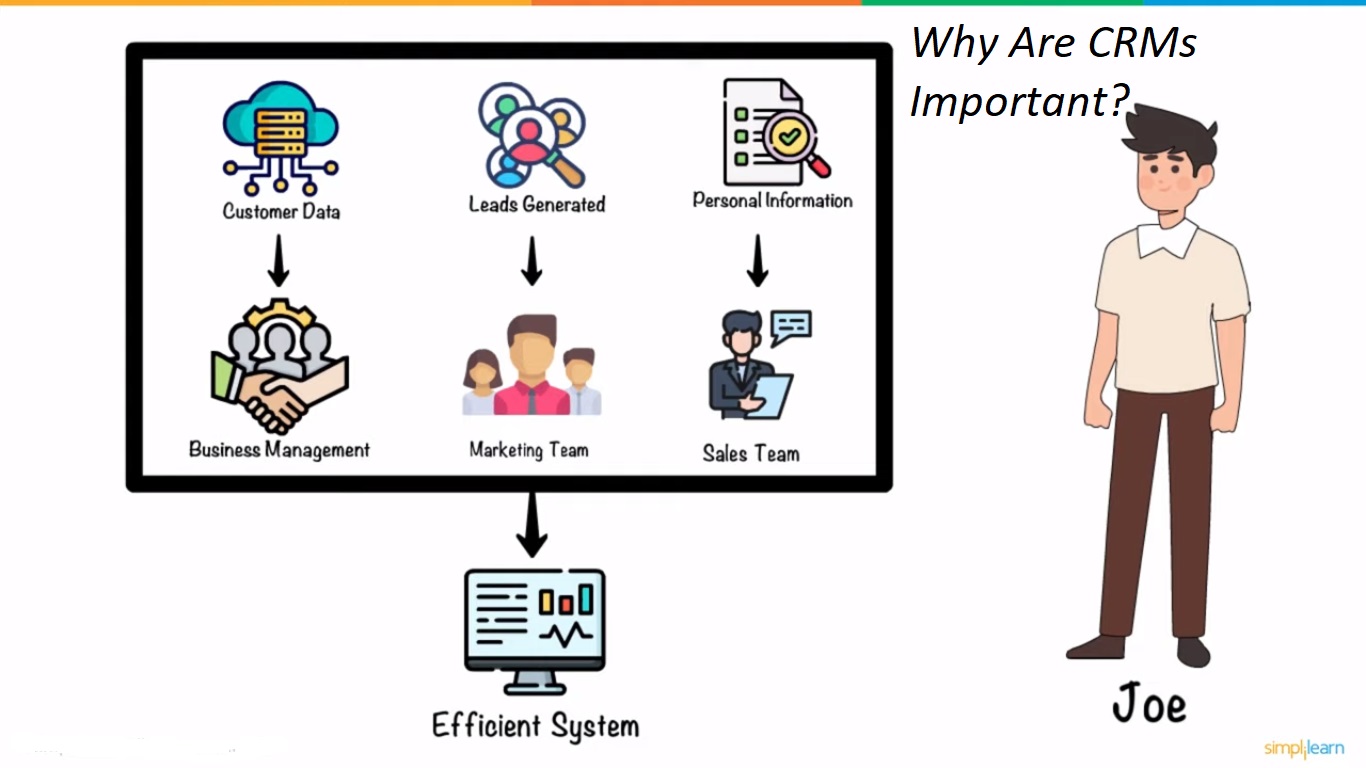
Introduction
In the competitive landscape of modern business, maintaining strong customer relationships is key to success. Customer Relationship Management (CRM) systems have become indispensable tools for businesses aiming to enhance their customer interactions, streamline operations, and drive growth. This article explores why CRMs are important, highlighting their benefits, key features, and the impact they can have on an organization’s overall performance.

What is a CRM?
A CRM, or Customer Relationship Management system, is a technology platform designed to manage a company’s interactions with current and potential customers. It centralizes customer information, tracks interactions, and automates various sales, marketing, and customer service processes. By leveraging CRM systems, businesses can better understand their customers, improve communication, and foster long-term relationships.
Benefits of CRMs
- Improved Customer Relationships: CRMs provide a 360-degree view of the customer, enabling businesses to understand their needs, preferences, and history. This leads to more personalized and effective interactions.
- Increased Sales: By managing leads and tracking customer interactions, CRMs help sales teams prioritize opportunities and close deals more efficiently.
- Enhanced Customer Service: CRMs enable support teams to access complete customer histories, allowing for faster and more personalized service.
- Streamlined Processes: Automation of routine tasks such as data entry, follow-up emails, and reporting frees up time for employees to focus on strategic activities.
- Better Data Management: CRMs centralize customer data, making it easier to analyze and derive insights that drive informed business decisions.
Key Features of CRMs
- Contact Management: Store and organize customer information in a centralized database, ensuring easy access and up-to-date records.
- Sales Pipeline Management: Track and manage sales opportunities from initial contact to closing the deal, providing visibility into the sales process.
- Marketing Automation: Automate marketing tasks such as email campaigns, social media posts, and lead nurturing to reach customers more effectively.
- Customer Support Tools: Manage customer inquiries and support tickets efficiently, ensuring prompt and satisfactory resolutions.
- Analytics and Reporting: Generate detailed reports on sales performance, customer behavior, and marketing effectiveness to guide strategic decisions.
Why CRMs Are Important
- Centralized Information: CRMs consolidate customer information in one place, making it accessible to all relevant departments and ensuring a unified approach to customer interactions.
- Increased Efficiency: Automation of routine tasks reduces the workload on employees, allowing them to focus on higher-value activities that drive business growth.
- Enhanced Customer Experience: By providing a comprehensive view of the customer, CRMs enable more personalized and responsive service, improving customer satisfaction and loyalty.
- Data-Driven Decisions: Access to detailed analytics and insights allows businesses to make informed decisions that enhance performance and drive growth.
- Scalability: CRMs can scale with your business, offering advanced features and integrations as your needs evolve, ensuring long-term relevance and utility.
FAQs
1. What are some popular CRM platforms? Popular CRM platforms include Salesforce, HubSpot CRM, Zoho CRM, and Microsoft Dynamics 365, each offering a range of features tailored to different business needs.
2. Can small businesses benefit from CRMs? Yes, small businesses can greatly benefit from CRMs by streamlining operations, improving customer interactions, and gaining insights that drive growth.
3. How do CRMs improve customer service? CRMs improve customer service by providing support teams with access to complete customer histories, enabling faster, more personalized, and effective responses to inquiries.
4. What types of businesses need a CRM? Any business that interacts with customers can benefit from a CRM, including retail, healthcare, finance, real estate, and many others.
5. How do CRMs support sales teams? CRMs support sales teams by managing leads, tracking interactions, providing visibility into the sales pipeline, and automating follow-ups, helping them close deals more efficiently.
Conclusion
CRMs are vital tools for businesses looking to enhance customer relationships, improve efficiency, and drive growth. By centralizing customer information, automating processes, and providing valuable insights, CRMs enable businesses to deliver better service, make informed decisions, and achieve their strategic goals. Embracing a CRM system can lead to significant improvements in customer satisfaction, sales performance, and overall business success.
